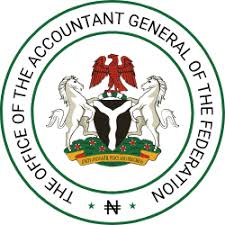The Independent Revenue Inspectorate Agency of Nigeria I-RIAN Bill as Nigeria’s Path to Financial Independence
Nigeria’s overreliance on borrowing to fund national budgets has not only deepened its financial crisis but also mortgaged its future. The solution is not in more loans but in learning from the successes of other nations. The Independent Revenue Inspectorate Agency of Nigeria (I-RIAN) Bill 2024 provides an opportunity for Nigeria to chart a new course by adopting proven taxation methodologies and innovations from other countries. By institutionalizing accountability, transparency, and efficiency, the I-RIAN Bill offers a transformative solution to Nigeria’s economic challenges.
Borrowing Ideas, Not Money
History shows that countries have often copied taxation systems and reforms from one another to build sustainable economies:
The United States borrowed its tax administration principles from the United Kingdom.
Australia adapted its tax system based on the United States’ methodologies.
Ghana modeled its tax structures after Canada, focusing on progressive taxation and technology-driven compliance.
These examples highlight a crucial truth: borrowing innovative ideas is more sustainable and impactful than borrowing money. Nigeria must follow this example by adopting global best practices to revamp its tax system.
The Cost of Borrowing Money
Nigeria’s reliance on loans comes with significant drawbacks:
1. Unsustainable Debt: Servicing loans consumes over 90% of revenue, leaving little for development.
2. Economic Dependence: Borrowing undermines Nigeria’s sovereignty, limiting its economic freedom.
3. Future Burden: Passing debt to future generations creates long-term economic instability.
With the I-RIAN Bill 2024, Nigeria can end this cycle by borrowing ideas to strengthen its tax system and generate sustainable revenue.
How the I-RIAN Bill Will Transform Nigeria’s Tax System
1. Accountability and Oversight
The I-RIAN Bill proposes the creation of an independent agency to oversee tax administration, mirroring models like the United States’ TIGTA. Its functions will include:
Auditing tax processes to recover lost revenue.
Investigating misconduct among tax officials and external actors.
Monitoring compliance and implementing reforms to close revenue gaps.
This approach will rebuild public trust, increase compliance, and ensure every naira collected is accounted for.
2. Leveraging Technology for Efficiency
Technology-driven tax administration is a hallmark of modern economies. Inspired by nations like Canada and the United States, the I-RIAN Bill emphasizes:
A unified digital platform for filing, monitoring, and enforcement.
Artificial intelligence to detect fraud and optimize tax compliance strategies.
Secure identity verification systems to prevent impersonation and fraud.
Digital transformation will streamline processes, reduce inefficiencies, and significantly increase revenue collection.
3. Expanding the Tax Net
Over 60% of Nigeria’s economy is in the informal sector, contributing little to tax revenues. The I-RIAN Bill prioritizes integrating this sector into the tax system through:
Mobile tax offices and online platforms to reach underserved populations.
Simplified registration and payment processes for small businesses.
Partnerships with financial institutions to identify and register informal businesses.
Drawing lessons from Australia and Canada, which successfully brought informal sectors into the tax fold, Nigeria can achieve a broader tax base that sustains national development.
4. Combating Fraud and Corruption
Countries like Ghana and the United States have shown the value of strict enforcement against tax fraud. The I-RIAN Bill provides mechanisms to:
Detect and prevent fraud in real-time using data analytics.
Prosecute high-profile offenders to deter others.
Partner with law enforcement to recover stolen funds.
By eliminating corruption and fraud, Nigeria can unlock billions of naira for development.
5. Prioritizing High-Yield Taxpayers
As seen in the United Kingdom and Canada, focusing on high-income taxpayers and large corporations yields significant revenue. The I-RIAN Bill emphasizes:
Auditing large corporations and wealthy individuals for compliance.
Enhancing transparency in sectors like oil, gas, and telecommunications.
Avoiding overburdening small businesses while encouraging voluntary compliance.
Targeting high-yield taxpayers ensures fairness and maximizes revenue potential.
Ending Nigeria’s Borrowing Culture
With the I-RIAN Bill, Nigeria can achieve financial independence by replacing loans with internally generated revenue. The benefits include:
1. Sustainable Revenue: A robust tax system provides reliable funding for infrastructure, healthcare, and education.
2. Economic Sovereignty: Increased revenue reduces dependence on foreign creditors.
3. Inclusive Growth: An expanded tax net ensures all citizens contribute to and benefit from national development.
—
A Call to Action: Borrow Ideas to Secure the Future
The I-RIAN Bill 2024 represents a bold step toward solving Nigeria’s economic crisis. By borrowing ideas from countries like the United States, the United Kingdom, Canada, and Australia, Nigeria can establish a transparent, efficient, and fair tax system that guarantees financial independence.
The time to act is now. Why borrow money when we can borrow ideas? The I-RIAN Bill is more than a tax reform; it is Nigeria’s declaration of economic sovereignty and its commitment to sustainable growth. With this legislation, the days of borrowing to fund national budgets can be over, ushering in a new era of prosperity and self-reliance.
God bless the Federal Republic of Nigeria
Sincerely
Orji Philip Orji
Tax Analyst
National Coordinator:
Association of Concerned Citizens of Nigeria on Revenue and Economy
ACCNRE
Good production costs money and you can support what we do. Please find our details below👇🏾👇🏾👇🏾 Account name: MARKET ONLINE MEDIA Bank: UBA Acc No: 1026401930.






























